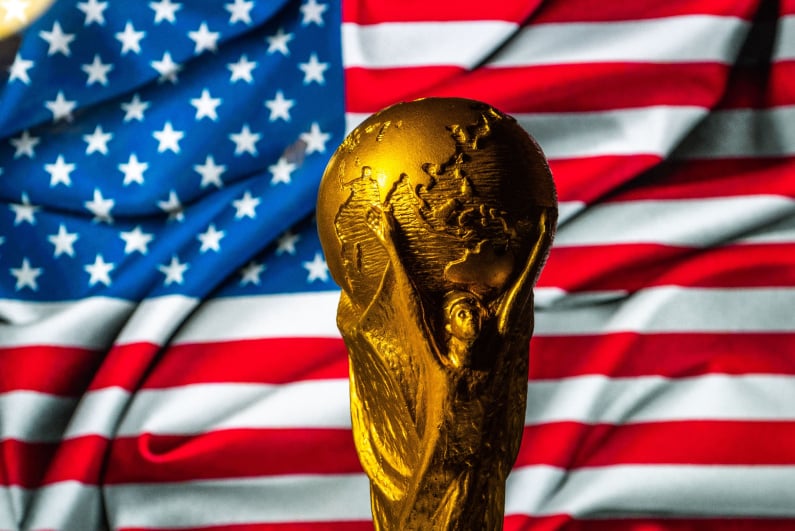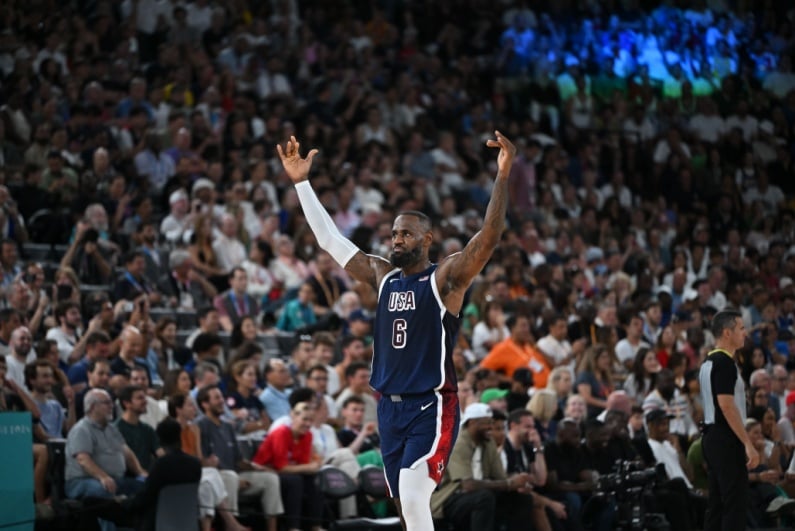Feisty relationships
The joint bid of Canada, Mexico, and the United States was awarded hosting rights for the 2026 World Cup by FIFA during its 68th congress on June 13, 2018, in Moscow. At the time, it appeared logical and worthy, as did the host city of said congress.
But a lot has changed since June 2018.
Trump opted to place tariffs on goods and services
Now, there are ever-increasing concerns about the feasibility of the three countries joint-hosting the tournament after US President Trump opted to place tariffs on goods and services from both other countries, creating some serious friction.
Rifts and border walls
In 2018, rifts were already appearing, and, of course, the Trump-proposed border wall between the USA and Mexico was still rumbling away in the background, but these were largely glossed over due to the three neighbors’ longstanding economic and political alliances.
In fact, it was the togetherness and joint thinking between the three countries that set their bid apart from those of their rivals.
“The unity of the three nations” was how then-president of the US Soccer Federation, Carlos Cordeiro, described it.
But while those words were uttered in good faith at the time, with the event just 15 months away and with Trump back in office, the whole thing now looks to be on a fragile footing.
Trump has decided to go all-in on trade wars with his neighbors and the rest of the world by placing tariffs which seem to come, then go, and then return, with many more, apparently, in the pipeline. Other countries, including Canada and Mexico, have responded with what they call “reciprocal tariffs,” and so it continues.
World teeters on brink of trade war
And there are wider geopolitical issues, like Trump appearing to side with Russia in its war with Ukraine and Israel in its bombing of the Gaza Strip, that have added to the complicated and volatile situation. And then there is, of course, Trump’s declared desire to turn Canada into the USA’s 51st state.
Each and every one of the issues mentioned above directly impacts the organization and coordination of the 2026 World Cup, including issues like the travel plans of the fans. Almost no element of the tournament is unaffected.
Trump, however, appears to perceive the tension and uncertainty as an opportunity.
“Oh, I think it’s going to make it more exciting,” was his comment in the Oval Office when he met with FIFA President Gianni Infantino last month.
Let’s not forget, the 2028 Olympics have also been awarded to Los Angeles.
will the rest of the world want to go to the US?
Such is the uncertainty and volatility surrounding the decision-making of the Trump administration, one of the questions being asked by the world’s media is, will the rest of the world want to go to the US for these events and, just as pertinently, will it be welcome?
And, given Trump’s newly installed strict border and visa policies, will the world even be able to get into the USA easily?
Is the USA as controversial as Russia and Qatar?
Much will depend on what happens in the coming year and whether Trump will be forced to ease off on some of his more draconian policies. But, as stated recently by Alan Rothenberg, the president of US Soccer in 1994 who ran that World Cup and successfully managed the bid to host the 1999 Women’s World Cup, we must consider that the last two World Cups have been hosted by Russia and Qatar.
Both events, despite the dubious backgrounds of both countries, attracted more than three million visitors.
Rothenberg: “People love the United States around the world. Frankly, we wouldn’t have the immigration issue that we’re dealing with if that weren’t the case, so a lot of this is government-to-government.
“A passionate soccer fan is not going to be held up by that. More than anything, they’ll see it as an opportunity for, perhaps, rapprochement, rather than escalating the tensions … besides, from an organizing standpoint, if either Canada or Mexico withdrew, the US would pick up the games in a heartbeat.”
On that basis, and based on Rothenberg’s logic, a boycott on the scale of the Summer Olympics of 1976, 1980, and 1984 appears unlikely.
Booing of the US national anthem
But, what we can expect, unless things change dramatically, is a World Cup like no other, one with an edge and an undercurrent of hostility, which appears to suit Trump just fine.
With the White House adding tariffs to more and more countries as the days and weeks pass, and with Russia’s war on Ukraine having put the whole of Europe on a heightened state of alert, relations between countries will become increasingly fraught.
Canadian spectators raucously booed “The Star-Spangled Banner”
It would also surprise no one if certain national anthems are met with choruses of boos in the soccer stadiums, just as when Canadian spectators raucously booed “The Star-Spangled Banner” during their recent hockey clash. But neither would it surprise anyone if Trump tried to use his influence to accommodate Russia’s participation in upcoming competitions.
While it may be too late for their participation in the World Cup – they are not part of the qualification process – few would be surprised to see them welcomed to the Los Angeles Olympics.
But what is clear is that Trump has built a relationship with FIFA President Giovanni Infantino, who has visited him on no less than five occasions since November’s election, including an appearance in the Oval Office.
Can Trump charm the IOC?
Whether Trump will be able to nurture the same cozy relationship with the International Olympic Committee (IOC) is another matter. Its newly elected president, Kirsty Coventry – the first female to hold that post – was recently asked about how she sees her working relationship with Trump and what she will be telling athletes about traveling to the US for the next Games.
Her response was fascinating: “I have been dealing with, let’s say, difficult men, in high positions since I was 20 years old and, first and foremost, what I have learned is that communication will be key. That is something that will happen early on. My firm belief is that President Trump is a huge lover of sports. He will want these Games to be significant. He will want them to be a success.”
How Trump reacts to suggestions that he is a “difficult man” will likely be a key factor in their upcoming working relationship.
But Coventry was adamant that all athletes, regardless of their country of origin, will be welcome. “We will not waiver from our values of solidarity in ensuring that every athlete that qualifies for the Olympic Games has the possibility to attend the Olympic Games and be safe during the Olympic Games.”
Again, Trump’s reaction to this statement will dictate the future direction of his relationship with the IOC.
A good Olympics will be a win for Trump
But there is an overriding belief among those involved in the management of the Los Angeles Olympics that Trump, for his own reasons, will want the 2028 Games to be a success.
In the words of US Olympic and Paralympic Committee chairman Gene Sykes: “I can’t speak for him, but I think he’s the kind of person who probably believes that having these go very, very well is a reflection of his leadership.”
How will Trump’s tariffs affect the World Cup?
But in the here and now, it’s Trump’s relationships with his neighboring and (World Cup) partnering countries that are of most importance.
In FIFA’s favor, aside from his relationship with Infantino, is that with Trump, as ever, there is an element of making it up as he goes along, and even if relations between Canada and the US reach breaking point and travel and spending restrictions are put in place, he is also prone to making exceptions.
FIFA and Infantino have to hope that this extends, even just for a six-week period, to them paving the way for a trouble-free World Cup, especially concerning the crossing of borders. Both the US and the Canadian soccer federations were recently asked by the Associated Press for their thoughts on how new White House policies may affect the 2026 World Cup, but both declined to comment.
The official line from the Mexican government, based on their recent meetings with FIFA, is that tariffs and the World Cup are “separate issues” and that the tournament may indeed offer a platform on which the two countries can “engage in a conversation.”
New rules for the duration of the World Cup?
This is the same stance that many neutral observers and experts are taking. The general consensus is that the event’s logistics, particularly in relation to security and team transportation from city to city and country to country, will be afforded special dispensation for its six-week duration.
how the geopolitical situation in the region will affect the World Cup
All of which sounds quite promising, but comes with the caveat that this Trump administration has developed a habit of making last-minute changes of direction. Nothing can be taken for granted and, even taking into account all of the reassuring words that are emanating from north and south of the US border, only nearer the time will it become clear how the geopolitical situation in the region will affect the World Cup in any way.
But, as long as it remains a trade war and doesn’t develop into an actual war – which appears highly unlikely – then soccer fans will at least have a World Cup to enjoy, even if it differs a little from the norm.




